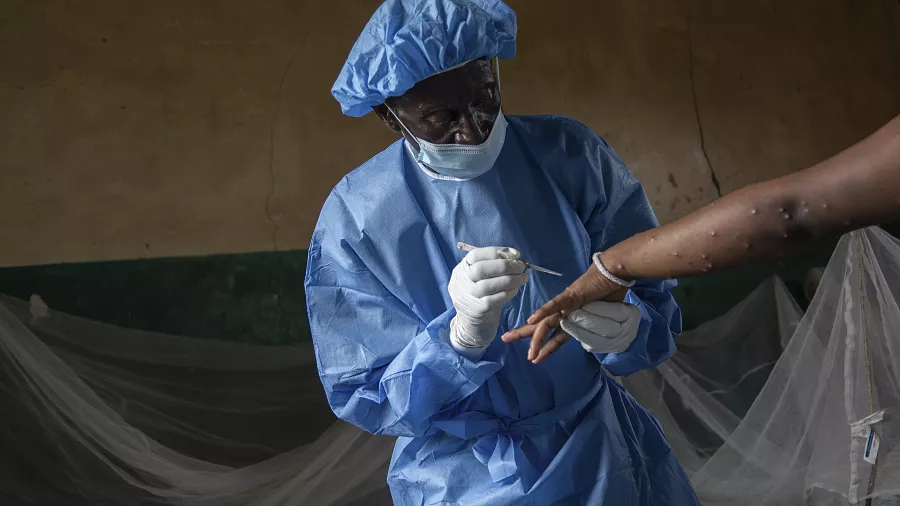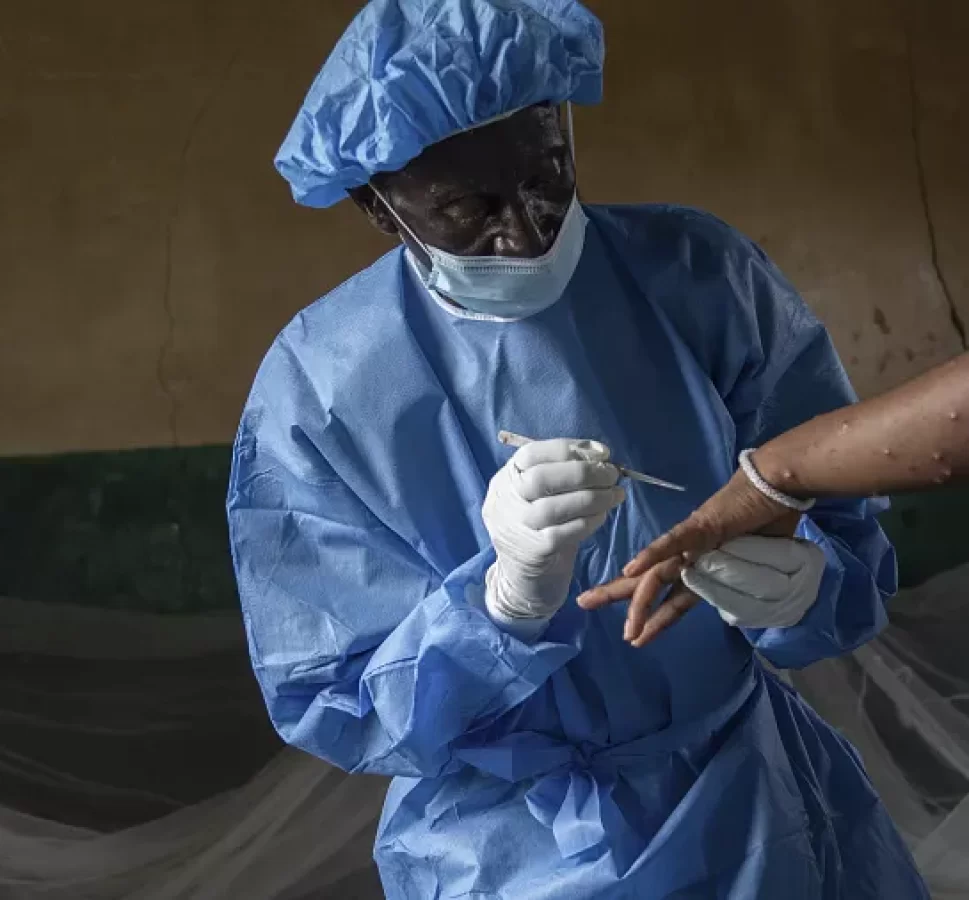
Sifa Kunguja contracted mpox four months ago in the remote town of Kamituga, the epicenter of an outbreak of a new variant of the disease, where she works as a sex worker. She says though recovered, she is unable to find clients as she did before.
She said people in town avoid her after word spread that she was ill.
“Some of the people who know that I was sick with mpox talk about me. So now I don’t have any more clients and I can’t make ends meet. I have lost everything,” she said.
Kamituga is a mineral-rich mining town in South Kivu Province where some 40,000 sex workers are estimated to reside. Gold miners make up the majority of their clientele.
Doctors estimate that 80% of cases here have been contracted sexually, though the virus also spreads through other kinds of skin-to-skin contact.
In early September, groups of sex workers gathered around tables at an outdoor cafe for a community mpox briefing. Irene Mabwidi was among them, and she said that though she’s used to being able to protect herself with condoms, now she isn’t sure how to keep herself healthy.
“When we work, we have condoms to protect ourselves from HIV and other infections. For mpox, I feel like there is no protection, because it passes through sweat,” she said.
Mpox causes mostly mild symptoms such as fever and body aches, but serious cases can mean prominent, painful blisters on the face, hands, chest and genitals.
Rights groups say possible legal consequences and fear of retribution — sex workers are subject to high rates of violence including rape and abuse — prevent women from seeking medical care. That can be especially detrimental during a public health emergency, according to experts.
Health officials in Kamituga are advocating for the government to shutter nightclubs and mines and compensate sex workers for lost business.
Local officials say they don’t have resources to do more than care for those who are sick, and they insist it’s sex workers’ responsibility to protect themselves.
Kamituga Mayor Alexandre Bundya M’pila told The Associated Press that the government is creating awareness campaigns but lacks money to reach everyone.
“Right now, we need to raise a lot of awareness. We need the means to arrive at a point where we can eradicate this. We need vaccines,” he said.
In Kamituga’s mines, where men arrive from around the region to make up to $120 a month – more than double the average income in the Congo – miners say there has been no outreach.
Debus Bulambo says he has already contracted mpox, and he doesn’t understand why there isn’t more effort from the government to address the spread of the disease.
“People who have not yet been affected by this disease are not afraid of it,” he said. In this mining site, there is no awareness. We only hear about it on the radio, in the community, at church. But here, in the mines, there is none.”






